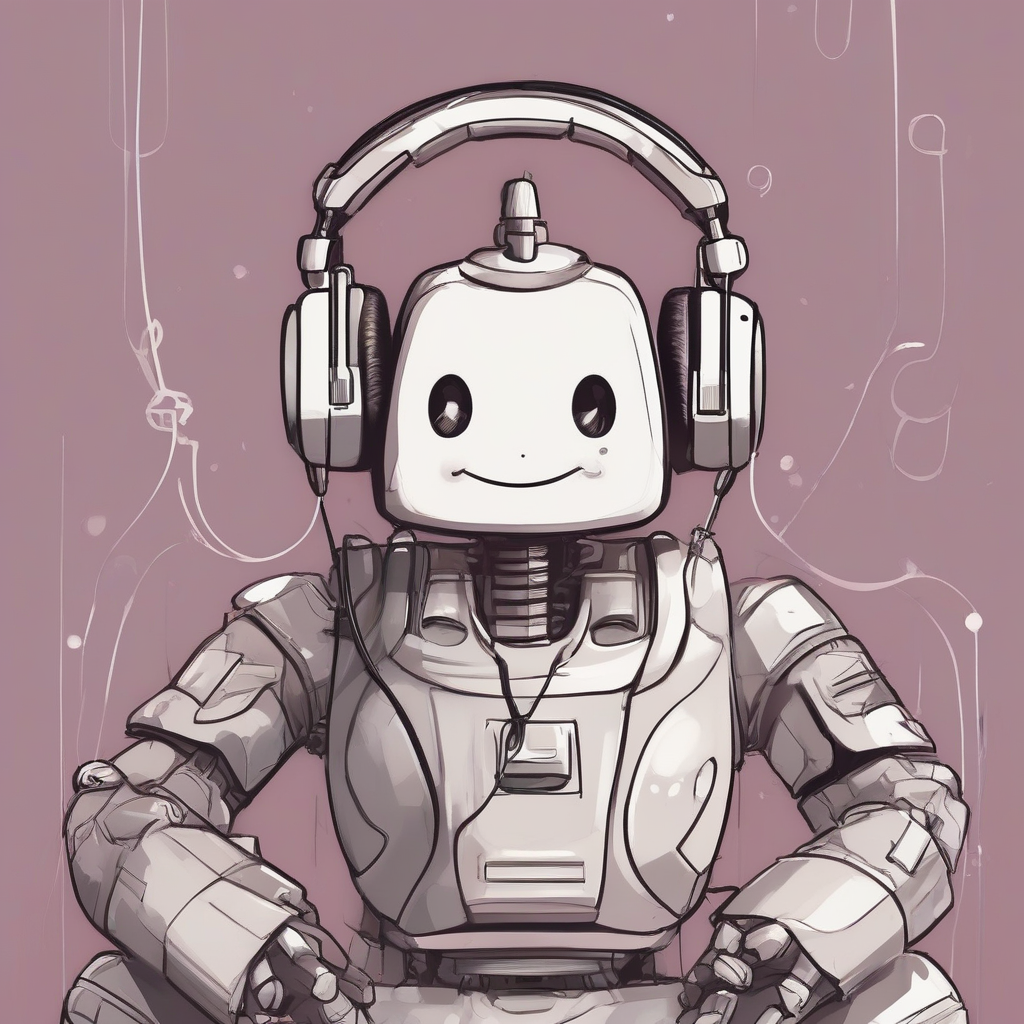
Check out this blog post if you want to know more about AI Endpoints.
You can also find more info on AI Endpoints in our previous blog posts.
This blog post explains how to create a podcast transcript using Whisper, a powerful automatic speech recognition (ASR) system developed by OpenAI. Whisper integrates with AI Endpoints and makes it easy to transcribe audio files and add features, like speaker diarization.
ℹ️ You can find the full code on Github ℹ️
Environment Setup
Define your environment variables for accessing AI Endpoints:
$ export OVH_AI_ENDPOINTS_WHISPER_URL=<whisper model URL>
$ export OVH_AI_ENDPOINTS_ACCESS_TOKEN=<your_access_token>
$ export OVH_AI_ENDPOINTS_WHISPER_MODEL=whisper-large-v3Install dependencies:
$ pip install -r requirements.txtAudio transcription
With Whisper and the OpenAI client, transcribing audio is as simple as writing a few lines of code:
import os
import json
from openai import OpenAI
# 🛠️ OpenAI client initialisation
client = OpenAI(base_url=os.environ.get('OVH_AI_ENDPOINTS_WHISPER_URL'),
api_key=os.environ.get('OVH_AI_ENDPOINTS_ACCESS_TOKEN'))
# 🎼 Audio file loading
with open("../resources/TdT20-trimed-2.mp3", "rb") as audio_file:
# 📝 Call Whisper transcription API
transcript = client.audio.transcriptions.create(
model=os.environ.get('OVH_AI_ENDPOINTS_WHISPER_MODEL'),
file=audio_file,
temperature=0.0,
response_format="verbose_json",
extra_body={"diarize": True},
)FYI:
– we use ‘diarize’ (not a Whisper parameter) to enable diarization, because the OpenAI client lets us add extra body parameters.
– you need verbose_json for diarization (which also means segmentation mode)
Once you have the full transcript, format it in a way that’s easy for humans to read.
Create the script
The JSON field ‘diarization’ contains all of the transcribed, diarized content.
"diarization": [
{
"speaker": 0,
"text": "bla bla bla",
"start": 16.5,
"end": 26.38
},
{
"speaker": 1,
"text": "bla bla",
"start": 26.38,
"end": 32.6
},
{
"speaker": 1,
"text": "bla bla",
"start": 32.6,
"end": 40.6
},
{
"speaker": 2,
"text": "bla bla",
"start": 40.6,
"end": 42
}
]Because they are segmented, you can merge several fields for the same speaker as detailed below—for speaker 1.
Here’s a sample code for creating the script of a French podcast featuring 3 speakers:
# 🔀 Merge the dialog said by the same speaker
diarizedTranscript = ''
speakers = ["Aurélie", "Guillaume", "Stéphane"]
previousSpeaker = -1
jsonTranscript = json.loads(transcript.model_dump_json())
# 💬 Only the diarization field is useful
for dialog in jsonTranscript["diarization"]:
speaker = dialog.get("speaker")
text = dialog.get("text")
if (previousSpeaker == speaker):
diarizedTranscript += f" {text}"
else:
diarizedTranscript += f"\n\n{speakers[speaker]}: {text}"
previousSpeaker = speaker
print(f"\n📝 Diarized Transcript 📝:\n{diarizedTranscript}")
Lastly, run the Python script:
$ python PodcastTranscriptWithWhisper.py
📝 Diarized Transcript 📝:
Stéphane: Bonjour tout le monde, ravi de vous retrouver pour l'enregistrement de ce dernier épisode de la saison avant de prendre des vacances bien méritées et de vous retrouver à la rentrée pour la troisième saison. Nous enregistrons cet épisode le 30 juin à la fraîche, enfin si on peut dire au vu des températures déjà présentes en cette matinée. Justement, elle revient chaudement de Sunnytech et c'est avec plaisir que je la retrouve pour l'enregistrement de cet épisode. Bonjour Aurélie, comment vas-tu ?
Aurélie: Salut, alors ça va très bien. Alors j'avoue, j'ai également très chaud. J'ai le ventilateur qui est juste à côté de moi donc ça va aller pour l'enregistrement du podcast.
Stéphane: Oui, c'est vrai qu'il fait un peu chaud. Et pour ce dernier épisode de la saison, c'est avec un mélange de joie mais aussi d'intimidation que je reçois notre invité. Si je fais ce métier de la façon dont je le fais, c'est grandement grâce à lui. Ce podcast, quelque part, a bien entendu des inspirations de ce que fait notre invité. Je suis donc très content de te recevoir Guillaume. Bonjour Guillaume, comment vas-tu et souhaites-tu te présenter à nos auditrices et auditeurs ? Bonjour à
Guillaume: tous et bien merci déjà de m'avoir invité. Je suis très content de rejoindre votre podcast pour cet épisode. Je m'appelle Guillaume Laforge, je suis un développeur Java depuis la première heure depuis très très longtemps. Je travaille chez Google, en particulier dans la partie Google Cloud. Je me focalise beaucoup sur tout ce qui est Generative AI vu que c'est à la mode évidemment. Les gens me connaissent peut-être ou peut-être ma voix d'ailleurs parce que je fais partie du podcast Les Cascodeurs qu'on a commencé il y a 15 ans ou quelque chose comme ça. Il y a trop longtemps. Ou alors ils me connaissent parce que je suis un des co-fondateurs du langage Groovy, Apache Groovy.Feel free to try out our new product, AI Endpoints, and share your thoughts.
Hang out with us on Discord at #ai-endpoints or https://discord.gg/ovhcloud. See you soon!
Once a developer, always a developer!
Java developer for many years, I have the joy of knowing JDK 1.1, JEE, Struts, ... and now Spring, Quarkus, (core, boot, batch), Angular, Groovy, Golang, ...
For more than ten years I was a Software Architect, a job that allowed me to face many problems inherent to the complex information systems in large groups.
I also had other lives, notably in automation and delivery with the implementation of CI/CD chains based on Jenkins pipelines.
I particularly like sharing and relationships with developers and I became a Developer Relation at OVHcloud.
This new adventure allows me to continue to use technologies that I like such as Kubernetes or AI for example but also to continue to learn and discover a lot of new things.
All the while keeping in mind one of my main motivations as a Developer Relation: making developers happy.
Always sharing, I am the co-creator of the TADx Meetup in Tours, allowing discovery and sharing around different tech topics.
